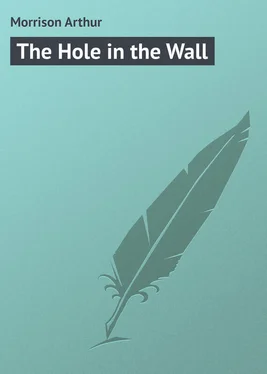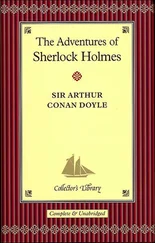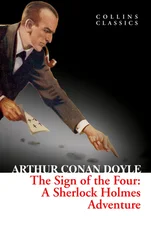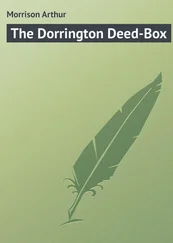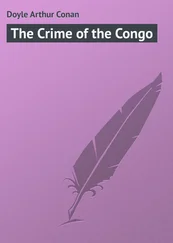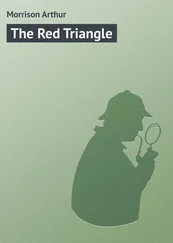Arthur Morrison - The Hole in the Wall
Здесь есть возможность читать онлайн «Arthur Morrison - The Hole in the Wall» — ознакомительный отрывок электронной книги совершенно бесплатно, а после прочтения отрывка купить полную версию. В некоторых случаях можно слушать аудио, скачать через торрент в формате fb2 и присутствует краткое содержание. Жанр: foreign_prose, на английском языке. Описание произведения, (предисловие) а так же отзывы посетителей доступны на портале библиотеки ЛибКат.
- Название:The Hole in the Wall
- Автор:
- Жанр:
- Год:неизвестен
- ISBN:нет данных
- Рейтинг книги:5 / 5. Голосов: 1
-
Избранное:Добавить в избранное
- Отзывы:
-
Ваша оценка:
- 100
- 1
- 2
- 3
- 4
- 5
The Hole in the Wall: краткое содержание, описание и аннотация
Предлагаем к чтению аннотацию, описание, краткое содержание или предисловие (зависит от того, что написал сам автор книги «The Hole in the Wall»). Если вы не нашли необходимую информацию о книге — напишите в комментариях, мы постараемся отыскать её.
The Hole in the Wall — читать онлайн ознакомительный отрывок
Ниже представлен текст книги, разбитый по страницам. Система сохранения места последней прочитанной страницы, позволяет с удобством читать онлайн бесплатно книгу «The Hole in the Wall», без необходимости каждый раз заново искать на чём Вы остановились. Поставьте закладку, и сможете в любой момент перейти на страницу, на которой закончили чтение.
Интервал:
Закладка:
"Ay, an' more."
"So I've 'eard tell. Well, arter that surely 'e was flyin' too 'igh! An' now Marr's absconded with the proceeds!"
The talk in the bar went on, being almost entirely the talk of Mr. Cripps; who valued himself on the unwonted importance his news gave him, and aimed at increasing it by saying the same thing a great many times; by saying it, too, when he could, in terms and phrases that had a strong flavour of the Sunday paper. But as for me, I soon ceased to hear, for I discovered something of greater interest on the shelf that skirted the bar-parlour. It was a little model of a ship in a glass case, and it was a great marvel to me, with all its standing and running rigging complete, and a most ingenious and tumultuous sea about it, made of stiff calico cockled up into lumps and ridges, and painted the proper colour. Much better than either of the two we had at home, for these latter were only half-models, each nothing but one-half of a little ship split from stem to stern, and stuck against a board, on which were painted sky, clouds, seagulls, and (in one case) a lighthouse; an exasperating make-believe that had been my continual disappointment.
But this was altogether so charming and delightful and real, and the little hatches and cuddy-houses so thrilled my fancy, that I resolved to beg of my grandfather to let me call the model my own, and sometimes have the glass case off. So I was absorbed while the conversation in the bar ranged from the ships and their owners to my father, and from him to me; as was plain when my grandfather called me.
"Here he is," said my grandfather, with a deal of pride in his voice, putting his foot on a stool and lifting me on his knee. "Here he is, an' a plucked 'un; ain't ye, Stevy?" He rubbed his hand over my head, as he was fond of doing. "Plucked? Ah! Why, he was agoin' to keep house all by hisself, with all the pluck in life, till his father come home! Warn't ye, Stevy boy? But he's come along o' me instead, an' him an' me's goin' to keep the Hole in the Wall together, ain't we? Pardners: eh, Stevy?"
I think I never afterwards saw my grandfather talking so familiarly with his customers. I perceived now that there was another in the bar in addition to Mr. Cripps; a pale, quiet, and rather ragged man who sat in an obscure corner with an untouched glass of liquor by him.
"Come," said my grandfather, "have one with me, Mr. Cripps, an' drink the new pardner's health. What is it? An' you – you drink up too, an' have another." This last order Grandfather Nat flung at the man in the corner, just in the tones in which I had heard a skipper on a ship tell a man to "get forrard lively" with a rope fender, opposite our quay at Blackwall.
"I'm sure 'ere's wishin' the young master every 'ealth an' 'appiness," said Mr. Cripps, beaming on me with a grin that rather frightened than pleased me, it twisted the nose so. "Every 'ealth and 'appiness, I'm sure!"
The pale man in the corner only looked up quickly, as if fearful of obtruding himself, gulped the drink that had been standing by him, and receiving another, put it down untasted where the first had stood.
"That ain't drinkin' a health," said my grandfather, angrily. "There – that's it!" and he pointed to the new drink with the hand that held his own.
The pale man lifted it hurriedly, stood up, looked at me and said something indistinct, gulped the liquor and returned the glass to the counter; whereupon the potman, without orders, instantly refilled it, and the man carried it back to his corner and put it down beside him, as before.
I began to wonder if the pale man suffered from some complaint that made it dangerous to leave him without a drink close at hand, ready to be swallowed at a moment's notice. But Mr. Cripps blinked, first at his own glass and then at the pale man's; and I fancy he thought himself unfairly treated.
Howbeit his affability was unconquerable. He grinned and snapped his fingers playfully at me, provoking my secret indignation; since that was what people did to please babies.
"An' a pretty young gent 'e is too," said Mr. Cripps, "of considerable personal attractions. Goin' to bring 'im up to the trade, I s'pose, Cap'en Kemp?"
"Why, no," said Grandfather Nat, with some dignity. "No. Something better than that, I'm hopin'. Pardners is all very well for a bit, but Stevy's goin' to be a cut above his poor old gran'father, if I can do it. Eh, boy?" He rubbed my head again, and I was too shy, sitting there in the bar, to answer. "Eh, boy? Boardin' school an' a gentleman's job for this one, if the old man has his way."
Mr. Cripps shook his head sagaciously, and could plainly see that I was cut out for a statesman. He also lifted his empty glass, looked at it abstractedly, and put it down again. Nothing coming of this, he complimented my personal appearance once more, and thought that my portrait should certainly be painted, as a memorial in my future days of greatness.
This notion seemed to strike my grandfather rather favourably, and he forthwith consulted a slate which dangled by a string; during his contemplation of which, with its long rows of strokes, Mr. Cripps betrayed a certain anxious discomfort. "Well," said Grandfather Nat at length, "you are pretty deep in, you know, an' it might as well be that as anything else. But what about that sign? Ain't I ever goin' to get that?"
Mr. Cripps knitted his brows and his nose, turned up his eyes and shook his head. "It ain't come to me yet, Cap'en Kemp," he said; "not yet. I'm still waiting for what you might call an inspiration. But when it comes, Cap'en Kemp – when it comes! Ah! you'll 'ave a sign then! Sich a sign! You'll 'ave sich a sign as'll attract the 'ole artistic feelin' of Wapping an' surroundin' districks of the metropolis, I assure you. An' the signs on the other 'ouses – phoo!" Mr. Cripps made a sweep of the hand, which I took to indicate generally that all other publicans, overwhelmed with humiliation, would have no choice but straightway to tear down their own signs and bury them.
"Umph! but meanwhile I haven't got one at all," objected Grandfather Nat; "an' they have."
"Ah, yes, sir – some sort o' signs. But done by mere jobbers, and poor enough too. My hart, Cap'en Kemp – I respect my hart, an' I don't rush at a job like that. It wants conception, sir, a job like that – conception. The common sort o' sign's easy enough. You go at it, an' you do it or hexicute it, an' when it's done or hexicuted – why there it is. A ship, maybe, or a crown, or a Turk's 'ed or three cats an' a fryin' pan. Simple enough – no plannin', no composition, no invention. But a 'ole in a wall, Cap'en Kemp – it takes a hartist to make a picter o' that; an' it takes study, an' meditation, an' invention!"
"Simplest thing o' the lot," said Captain Nat. "A wall, an' a hole in it. Simplest thing o' the lot!"
"As you observe, Cap'en Kemp, it may seem simple enough; that's because you're thinkin' o' subjick, instead o' treatment. A common jobber, if you'll excuse my sayin' it, 'ud look at it just in that light – a wall with a 'ole in it, an' 'e'd give it you, an' p'rhaps you'd be satisfied with it. But I soar 'igher, sir, 'igher. What I shall give you'll be a 'ole in the wall to charm the heye and delight the intelleck, sir. A dramatic 'ole in the wall, sir, a hepic 'ole in the wall; a 'ole in the wall as will elevate the mind and stimilate the noblest instinks of the be'older. Cap'en Kemp, I don't 'esitate to say that my 'ole in the wall, when you get it, will be – ah! it'll be the moral palladium of Wapping!"
" When I get it," my grandfather replied with a chuckle, "anything might happen without surprisin' me. I think p'rhaps I might be so startled as to forget the bit you've had on account, an' pay full cash."
Mr. Cripps's eyes brightened at the hint. "You're always very 'andsome in matters o' business, Cap'en Kemp," he said, "an' I always say so. Which reminds me, speakin' of 'andsome things. This morning goin' to see my friend as keeps the mortuary, I see as 'andsome a bit o' panel for to paint a sign as ever I come across. A lovely bit o' stuff to be sure – enough to stimulate anybody's artistic invention to look at it, that it was. Not dear neither – particular moderate in fact. I'm afraid it may be gone now; but if I'd 'a 'ad the money – "
Читать дальшеИнтервал:
Закладка:
Похожие книги на «The Hole in the Wall»
Представляем Вашему вниманию похожие книги на «The Hole in the Wall» списком для выбора. Мы отобрали схожую по названию и смыслу литературу в надежде предоставить читателям больше вариантов отыскать новые, интересные, ещё непрочитанные произведения.
Обсуждение, отзывы о книге «The Hole in the Wall» и просто собственные мнения читателей. Оставьте ваши комментарии, напишите, что Вы думаете о произведении, его смысле или главных героях. Укажите что конкретно понравилось, а что нет, и почему Вы так считаете.
